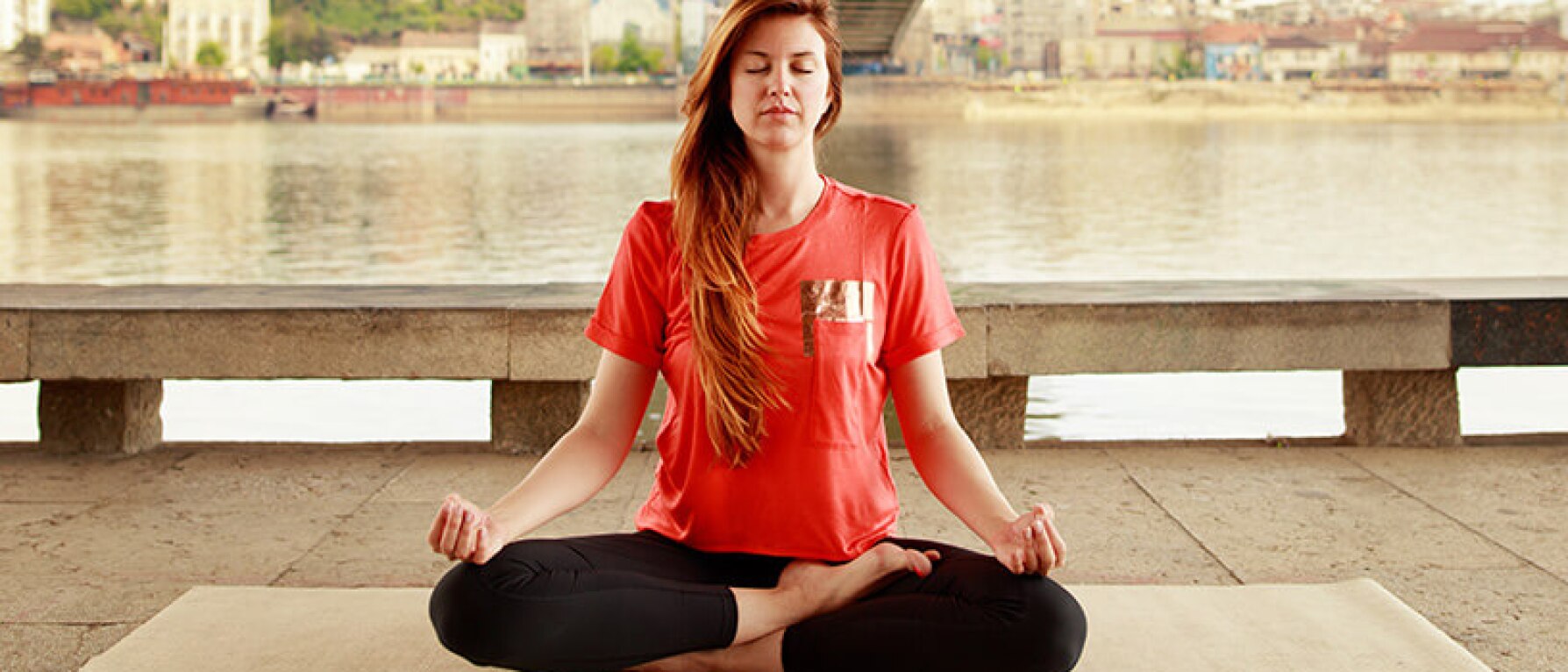Acts of violence, terrorism, and major natural catastrophes dominate global headlines and, in some cases, they have hit you directly. There is no avoiding the effects these events have; you are likely searching for ways to navigate your emotions and cope with the aftermath.
In 2017, there were over 300 mass shootings in the US alone, according to the Mass Shooting Tracker, which catalogues and reports on such incidents. There have been countless acts of hatred and terrorism across the globe, perpetuating high levels of fear and anxiety and even our very own planet earth has dealt some deadly blows with earthquakes, flooding and hurricanes. Buildings have fallen, communities have been destroyed, and precious lives have been lost.
Whether you realize it or not, or whether you choose to acknowledge it or not, these events affect you on the spiritual, mental, emotional, and physical levels. These events may make you question your faith, your beliefs, and your overall ability—or desire—to function in the world. There is no way to sugar coat the fact that we live in a reality where anything can happen at any given moment to change your life forever. The question now becomes, how can you access the resources you have within to handle these events in the best way possible?
While there is no way to fully prepare yourself for the unthinkable, you can begin to develop some strategies for how to manage your emotional states while staying informed and empowered in an uncertain world. Coping tools will help you to have a greater level of awareness and focus, which enable you to slow things down enough to consciously respond rather than be emotionally reactive.
How are you going to choose to navigate your experiences—the good, the bad and everything in between? There are three primary steps to follow.
One of the best ways to protect your immediate environment is to eliminate, or, at the very least, minimize your exposure to media. Of course, it’s important to be informed of what is occurring in your community and around the world. It’s just as important, however, to use discernment around what you are choosing to let in to your mind—consciously and unconsciously.
In some cases, you may need to set and enforce boundaries, especially in the case of sharing a home with others. It’s perfectly acceptable to communicate honestly and directly about where your boundaries are in terms of what is being discussed or fed through technology. It’s your responsibility to know yourself—what works for you and what doesn’t—and to be okay in sharing that with others.
Journaling is an age-old approach to working through your emotions through self-reflection and contemplation. It’s a powerful way to identify what is coming up for you and work through whatever needs to be addressed and resolved. There is a large body of scientific evidence out there that supports the spiritual, mental, emotional, and physical benefits of journaling.
Forgiveness, when you are ready, will lighten your burden. One of the biggest misunderstandings around forgiveness is that it’s somehow letting the other person off the hook or condoning what has occurred. The purpose of forgiveness is to heal yourself so you’re no longer carrying the emotional burden around on your back. The act of forgiveness is for you.
Even the most unimaginable experiences can, once some healing has occurred, bring you insight and wisdom. You may have heard of people who suffered from illness say that it was, in some ways, the best thing that ever happened to them. Not because they enjoyed what they went through but because it taught them something about themselves that they may never have learned or understood had they not been faced with that health challenge. This can be a powerful place of inquiry from which to learn more about yourself, life, and how you would like to show up in the face of adversity.
From this new perspective, you now get to choose how you can help others to follow suit. Possible avenues for helping (yourself and) others could come through volunteer activities, safety and education opportunities, personal growth courses, or just being able to hold space for another. The best leaders are almost always those who have gone through their own process of hitting rock bottom and finding their way out. They’ve been where you are now.
Now, you get to be the leader for others who are struggling with how to cope in a world that seems to be spinning out of control. You can help them, in your unique way, onto a path of healing themselves from the inside out and when they come out the other side stronger, more balanced, and empowered, you are there to help them choose how they want to be the positive change they wish to see in the world.
How you go about changing the world around you is by first healing yourself from the inside. Only then will you have the strength, vision, and fortitude to help make the world a better place—one human at a time.
In 2017, there were over 300 mass shootings in the US alone, according to the Mass Shooting Tracker, which catalogues and reports on such incidents. There have been countless acts of hatred and terrorism across the globe, perpetuating high levels of fear and anxiety and even our very own planet earth has dealt some deadly blows with earthquakes, flooding and hurricanes. Buildings have fallen, communities have been destroyed, and precious lives have been lost.
Whether you realize it or not, or whether you choose to acknowledge it or not, these events affect you on the spiritual, mental, emotional, and physical levels. These events may make you question your faith, your beliefs, and your overall ability—or desire—to function in the world. There is no way to sugar coat the fact that we live in a reality where anything can happen at any given moment to change your life forever. The question now becomes, how can you access the resources you have within to handle these events in the best way possible?
While there is no way to fully prepare yourself for the unthinkable, you can begin to develop some strategies for how to manage your emotional states while staying informed and empowered in an uncertain world. Coping tools will help you to have a greater level of awareness and focus, which enable you to slow things down enough to consciously respond rather than be emotionally reactive.
How are you going to choose to navigate your experiences—the good, the bad and everything in between? There are three primary steps to follow.
1. Know Yourself and Protect Your Space
The first step is to become present to how external circumstances and people affect you. Becoming aware of your mindset and emotions when upsetting events occur puts you in a position to assess how best to navigate heavy events and circumstances.One of the best ways to protect your immediate environment is to eliminate, or, at the very least, minimize your exposure to media. Of course, it’s important to be informed of what is occurring in your community and around the world. It’s just as important, however, to use discernment around what you are choosing to let in to your mind—consciously and unconsciously.
In some cases, you may need to set and enforce boundaries, especially in the case of sharing a home with others. It’s perfectly acceptable to communicate honestly and directly about where your boundaries are in terms of what is being discussed or fed through technology. It’s your responsibility to know yourself—what works for you and what doesn’t—and to be okay in sharing that with others.
2. Self-Reflect Through the Healing Process
Once you know and understand yourself and you’ve handled your environment, there are a few ways to open up space to process what’s coming up for you. Allowing yourself the freedom and safety to reflect and heal will enable you to respond from a more calm, centered, and balanced state.Journaling is an age-old approach to working through your emotions through self-reflection and contemplation. It’s a powerful way to identify what is coming up for you and work through whatever needs to be addressed and resolved. There is a large body of scientific evidence out there that supports the spiritual, mental, emotional, and physical benefits of journaling.
Forgiveness, when you are ready, will lighten your burden. One of the biggest misunderstandings around forgiveness is that it’s somehow letting the other person off the hook or condoning what has occurred. The purpose of forgiveness is to heal yourself so you’re no longer carrying the emotional burden around on your back. The act of forgiveness is for you.
3. Empower Yourself for Change
Now that you’re in a stronger place mentally and emotionally, you’re able to navigate the terrain in a more empowered way. You will never forget what has happened, but you’re in a position to make a conscious decision about how you are going to show up in this world. Having daily practices that include spirituality, mindset, emotional intelligence, and physical health are the cornerstones for getting you there.Even the most unimaginable experiences can, once some healing has occurred, bring you insight and wisdom. You may have heard of people who suffered from illness say that it was, in some ways, the best thing that ever happened to them. Not because they enjoyed what they went through but because it taught them something about themselves that they may never have learned or understood had they not been faced with that health challenge. This can be a powerful place of inquiry from which to learn more about yourself, life, and how you would like to show up in the face of adversity.
From this new perspective, you now get to choose how you can help others to follow suit. Possible avenues for helping (yourself and) others could come through volunteer activities, safety and education opportunities, personal growth courses, or just being able to hold space for another. The best leaders are almost always those who have gone through their own process of hitting rock bottom and finding their way out. They’ve been where you are now.
Now, you get to be the leader for others who are struggling with how to cope in a world that seems to be spinning out of control. You can help them, in your unique way, onto a path of healing themselves from the inside out and when they come out the other side stronger, more balanced, and empowered, you are there to help them choose how they want to be the positive change they wish to see in the world.
How you go about changing the world around you is by first healing yourself from the inside. Only then will you have the strength, vision, and fortitude to help make the world a better place—one human at a time.




